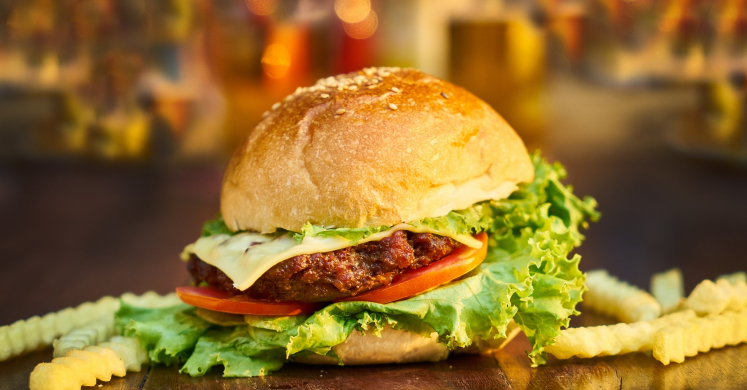Phipps Stories

Beyond Burger vs. Impossible Burger - What’s the Difference?
The Beyond Burger use a variety of plant proteins from pea, mung bean, fava bean and brown rice to deliver a meaty taste. Cocoa butter, coconut oil and sunflower oil create a juice texture similar to the fat in hamburger and stimulate the same sizzle in the pan or on the grill. Beet juice extract provides the color and cooking experience we expect in a burger. The blend of potato starch and plant fiber derivatives not only help hold the ingredients together but also provide the chewy meaty texture. The company’s goal is to source the building blocks of meat directly from plant-based ingredients in order to positively impact human health, climate change, constraints on natural resources, and animal welfare.
The Impossible Burger also use a variety of plant ingredients to produce their burgers, with some differences. The protein comes from soy and potatoes, the fat from coconut and sunflower oils, and methylcellulose and food starch hold it all together so you can make anything you want - meatballs, kebab, patties.
- Impossible burgers contain one unique ingredient: heme. Heme is an iron-containing molecule found in both plants and animals and helps deliver oxygen in the blood to tissues all round your body.
- The scientists at Impossible Foods believed that heme gives meat its “bloody taste” when raw and creates the explosion of meaty flavors and aromas when it’s cooked.
- While heme is primary found in the protein myoglobin of meats, the scientists at Impossible Foods found that soybeans make a functionally identical protein known as leghemoglobin. However, leghemoglobin is made in the roots so the extraction process would be difficult, expensive and terrible for the soil. As a result, Impossible Foods decided to genetically engineer a type of yeast to make soybean leghemoglobin and grow this yeast in fermenters like those you would find at a brewery. In this way, the production process would be more sustainable and scalable. Notably, Impossible Burgers contain added B12, which is a plus for vegetarians.
- According to their website, the Impossible Burger is Halal and Kosher certified.
Are They Healthier than Hamburgers?
From a nutrition standpoint, Impossible Burgers and Beyond Burgers contain similar amounts of calories, protein, total fat, and saturated fat as the 80% and 85% lean ground beef. However, it’s worth mentioning that the Impossible Burgers and Beyond Burgers contain over 4 times as much sodium as both the lean ground beef burger and the ground turkey burger. It’s important for you to be mindful of this difference if you are trying to improve your cardiovascular health.
On a positive note, Impossible Burgers and Beyond Burgers contain small amounts of fiber and no cholesterol. However, the fiber content is very limited since they are highly processed. In comparison, the legume-based black bean burger contains 3 times as much fiber, while providing only one third of the saturated fat. You can also boost your fiber intake by adding vegetables to your Impossible Burgers or Beyond Burgers sandwiches. Not a fan of veggie toppings? A side salad or piece of fruit are great fiber-rich alternatives.
Taken together, plant-based “meats” may be good for the well-being of our planet, but they may not be the best option for our health. It’s especially crucial if you are currently watching your sodium intake. As always, it’s important to read and compare the Nutrition Facts labels if you would like to incorporate any meat alternatives to your daily meals.

